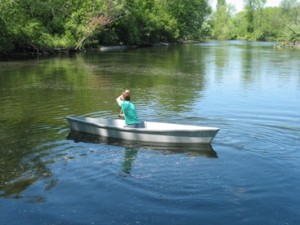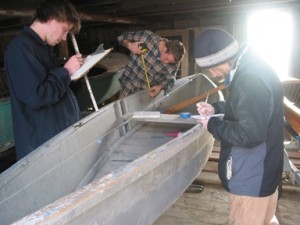Middlebury College hosts hundreds of events each year. A successful event is the result of careful and timely planning. To assist you with planning your event, LIS has outlined these tips for a successful event:
- Plan ahead: For all events that require tech support, we ask that you give us at least 5 business days notice. This deadline ensures that we have enough time to coordinate support with other departments (that have similar deadlines) and ensures that we can support more events and produce higher quality events.
- Give the Master Location Schedule a spin: This tool can help you get a list of spaces that have the features you need: visit go/mls, open the Locations tab, click More Search Options and under Features select the feature you are looking for (e.g. Computer installed at the podium). This can be very helpful in the early planning stages.
- The right room for the job: Keep in mind that some spaces are better suited for specific purposes. The event location is especially important if:
- you are planning a videoconference,
- you would like to have the event recorded
- you plan to use microphones
Not all spaces are well suited for the above purposes (due to acoustics, lighting, capacity, etc.) Thus, to ensure a successful event, LIS has selected specific locations (see list below) that are best designed for these types of events. The Scheduling Office will work with you and LIS to find the best location for your event.
- Tech options: Consider whether you will need additional equipment or tech support (projector, microphones, show a DVD, record the event, etc.):
- Many event venues already have the most popular equipment (projection, speakers, etc.), as well as an easy to use control panel and a set of printed instructions. With a brief orientation session, you’ll operate the equipment with ease. Contact the Helpdesk if you would like to schedule an orientation session.
- If the location you are hoping to use does not have the equipment you need, LIS offers several options for getting equipment on loan.
- If you’re sure you’ll need tech support, make sure to indicate that when filling out your event reservation request.
- The Scheduling Office is your ally. Submit your reservation request to the scheduling office as soon as possible, keeping in mind that LIS and other service departments require a 5-7 day notice. If you do require equipment or tech support, please ensure you select the appropriate option on the form. If the correct option is selected, the Scheduling Office will notify the Helpdesk of your event in a timely manner and we will contact you if more information is needed. Again, it is imperative that you respond to our requests for information at least 5 business days in advance of the event.
- Useful forms: To help you prepare for some types of events, and to ensure we get all the information necessary to give you our best service, we may ask you to complete a simple form. See the list of useful forms below.
- Guest speakers: If you are bringing a guest speaker on-campus, send them our Technology Checklist for Visiting Speakers.
- Use a podium computer or bring your own: A lot of classrooms have a built-in computer at the podium, reducing the need to bring your own computer. Again, the Master Location Schedule can help you get a list of these locations. If you prefer to use your own laptop for the presentation, make sure to test your computer and your presentation in the event location. Please feel free to contact the Helpdesk if you would like us to help out with the test!
- PowerPoint Tips: Using PowerPoint to enhance a talk, Tips for including media – pictures, videos, audio (& ensuring it all works!)
- Microphone Tips: Effective Microphone Techniques
Supported Locations
Due to acoustics, lighting, capacity and other factors, not all spaces are well suited for special events such as recordings, videoconferencing, etc. Thus, to ensure a successful event, LIS has selected specific locations that are best designed for these types of events. The Scheduling Office will work with you and LIS to find the best location for your event but you can plan ahead and review the potential venue options:
- Supported recording spaces
- Videoconferencing locations
- Screening locations
- Locations with built-in microphone systems
Every year we renovate selected spaces, so the options will continue to grow. You can always check the above links for the most up-to-date information.
Useful Forms
To help you prepare for some types of events, and to ensure we get all the information necessary to give you our best service, we’ve prepared a few forms:
- For recordings:
- You will need to have the speaker(s) fill out the recording consent form (go/consent). We need to receive this form 2 business days (48 hours) before the event or we will not be able to record. This is a legal document that ensures the speaker is aware of your intent and, at the same time, protects you and the College in the case of a lawsuit. For more information, visit go/consent.
- Complete the recording request form (go/recording). We need to receive this form 5 business days before the event or we will not be able to record. This form collects information that we need to prepare for the recording, create a high quality recording that is accessible and reliable, and properly catalog the recording so that you or the College may reuse it in the future. For more information visit go/recording.
- For film screenings:
- Complete the screening request form (go/screening). We need to receive this form 5 business days before the event or we cannot guarantee that we can staff the screening. Screening any media requires sufficient time to purchase (or confirm) that we have the screening rights and that we have the working physical media. Even if you plan to bring your own media, screening rights need to be confirmed and the media itself needs to be tested. For more information, visit go/screening.
Note: We will continue to update this list, as our services and event venues change. Please check the page Top Tech Tips for a Successful Event for the latest version. In addition, visit the Media Services homepage for more information on our services.

